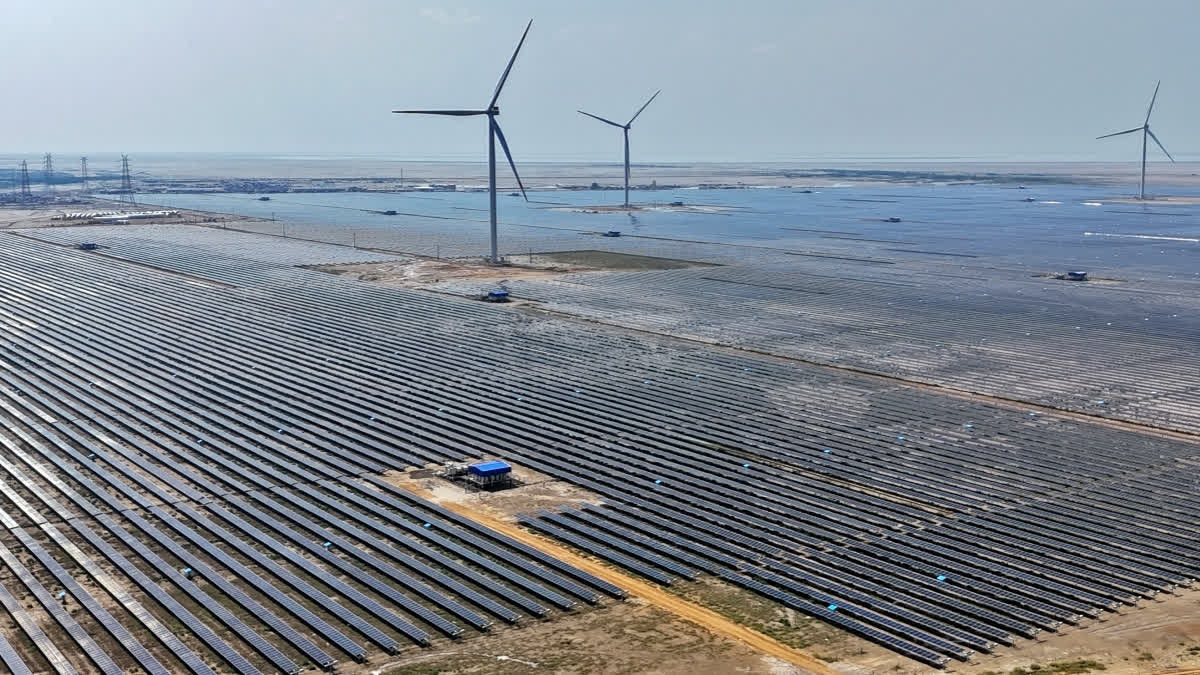Khavda:Vast lines of solar panels reflect the blazing sun in India's western deserts, a dazzling ocean broken only by bristling wind turbines. India, along its desolate border with Pakistan, is building what it boasts will be the world's largest renewable power plant, an emblem of a determined push to boost solar energy.
The Khavda plant in Gujarat state consists of some 60 million solar panels and 770 wind turbines spread over 538 square kilometres (208 square miles) -- almost the size of the sprawling megacity Mumbai.
In front of a wall of screens, a handful of operators monitor the machines under the slogan: "Adani Group: Growth with Goodness". "Today, we can produce up to 11 gigawatts of electricity," said Maninder Singh Pental, vice-president of Adani Green Energy, the subsidiary of Indian conglomerate Adani Group, and in which France's TotalEnergies holds a 20 percent stake.
"In 2029, we will be able to produce up to 30 GW," he added proudly. At that point, India will break another record, with Khavda overtaking China's 18 GW Three Gorges hydroelectric dam to become the most powerful electricity production site in the world.
The power is sorely needed in the world's most populous nation, where demand has doubled since 2000, driven by demographic expansion, economic growth and rapid urbanisation.
India vows to be carbon neutral by 2070 and as part of that, New Delhi wants its renewable energy capacity to rise from 200 GW -- half of its current energy mix -- to 500 GW by 2030. It hopes 300 GW will come from solar power alone.
The International Energy Agency, in a report this year, said India is "expected to almost triple its 2022 renewable capacity by 2030", maintaining its third place position among the largest renewable energy producers.
Adani bombshell
As Prime Minister Narendra Modi speaks of a "solar revolution" panels are popping up across India, from power plants to rooftops. But Adani Green Energy CEO Sagar Adani said what matters is the scale of production as it is easier and quicker to ramp up the country's baseload with bigger units than smaller ones.
"The country needs a large amount of large concentrated big locations," he said. "You can have 200 projects of 50 megawatts each, nothing is going to happen to India with that." Adani has vowed to commit $35 billion to renewables by 2030.
However, a bombshell US indictment last week has caused complications, with TotalEnergies freezing all new investments in the conglomerate after tycoon founder Gautam Adani and multiple subordinates were accused of fraud -- charges fiercely denied. But observers suggest the solar power push will continue.
